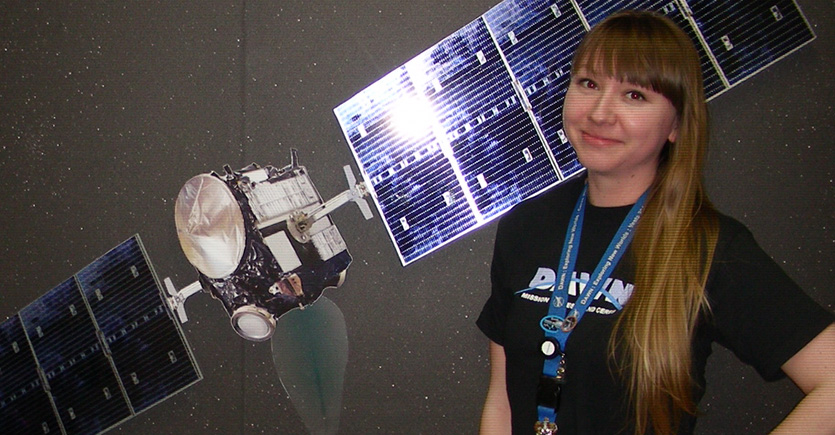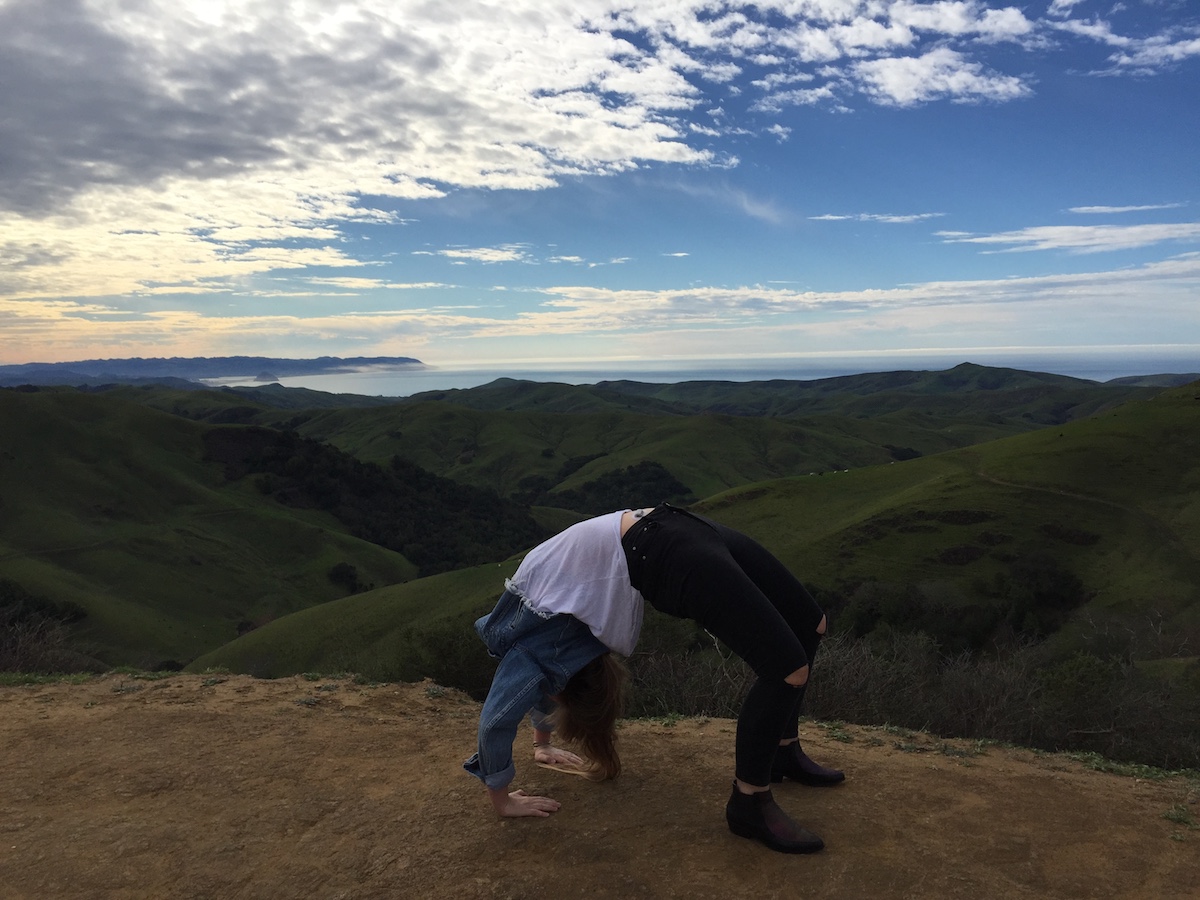
Kristina Larson
Systems Engineer - NASA Jet Propulsion Laboratory
I grew up in Southern California, specifically Eagle Rock and Altadena, and attended the University of Southern California for my undergrad and grad school. I now live in Pasadena, California.
I have been interested in all things space as long as I can remember. As a kid I loved anything space related, from books on the solar system to Stargate SG-1. I was able to attend the STS-118 shuttle launch in 2007 with my dad and that only further solidified my desire to send things into space.
I began a summer internship on the Dawn project at JPL the summer after my sophomore year of college. I worked on Dawn every summer until grad school, during which I worked as a part time academic. Although my undergrad and graduate majors were Aerospace Engineering, my graduate studies were mainly focused on subjects related to space. Once I graduated, I began working full-time on Dawn. I also spent about a year working on the MER Opportunity rover as a Tactical Downlink Lead.
My parents always inspired me to find a career that I truly loved. They are both very passionate about what they do and were great examples. I studied music intensely in high school but ultimately decided to follow my passion for space in college. Along that journey, my parents only encouraged me to work hard and even more so, to enjoy that work.
A Systems Engineer can be hard to describe, especially on a smaller project, since they often expand to fill needs as they arise. As a Systems Engineer on Dawn, I create sequences to send to the spacecraft to perform activities, like playing back data in a special way or doing an engineering calibration. I review and test sequences on the testbed which has both hardware copies of components on the spacecraft as well as software simulations. The testbed is where we find any bugs before sending the final product to the spacecraft. With a current roundtrip light time of over an hour, there's no room for mistakes!
Systems Engineers also need to be problem solvers when the spacecraft exhibits any anomalous behavior. We monitor states on the spacecraft, like temperatures and counters, and take action if we see anything concerning. You need a good overall understanding of all of the spacecraft's subsystems (i.e. flight software, thermal, propulsion, attitude control, etc.) so that you can understand the complex interactions on the spacecraft.
One of my absolute favorite moments was seeing the first full-frame Vesta image. There is something very unique about being in the first group of people to see an image of a previously unseen body. Seeing the detailed cratered surface was mind blowing.
Work hard. If you love what you do, it won't be difficult and it will definitely pay off in the end! Engineering is not the easiest major to undertake and does not lend itself to the most relaxed college experience, but in the end you will be doing what is in my opinion the coolest job on this planet and you will never be bored. Learn all that you can about the field. Stay current on new developments and activities in the space industry. Join any groups or clubs outside of class that give you more hands on experience in the field. Network and put yourself out there, meeting as many people in the field as you can. Learn how to explain yourself and communicate well.
Explore the field. Join any groups outside of your classes that will give you hands on experience, like rocket or airplane building clubs. Attend lectures and presentations on subjects that you find interesting. Put yourself out there and meet as many people in the field as possible. Take classes on coding, even if it's not a requirement for your specific major. Trust me, it will come in handy! Stay current on new technologies and things happening in the space industry. Lastly, work hard! People recognize and appreciate hard work and will want you as part of their team.

I am always up for a good adventure. This has taken me skydiving, parasailing, and more. My current interest is rock climbing, both at the Stronghold climbing gym and outdoors around Southern California. I practice yoga to keep me injury and stress free, and I love to explore the awesome hikes that we have around LA. I also really enjoy reading.
I come from an arts background so music still plays a big role in my life and I play flute very often. I love spending time with my family and friends, and of course my main man- my rescue cat, Pippi.
Planetary science is a global profession.

